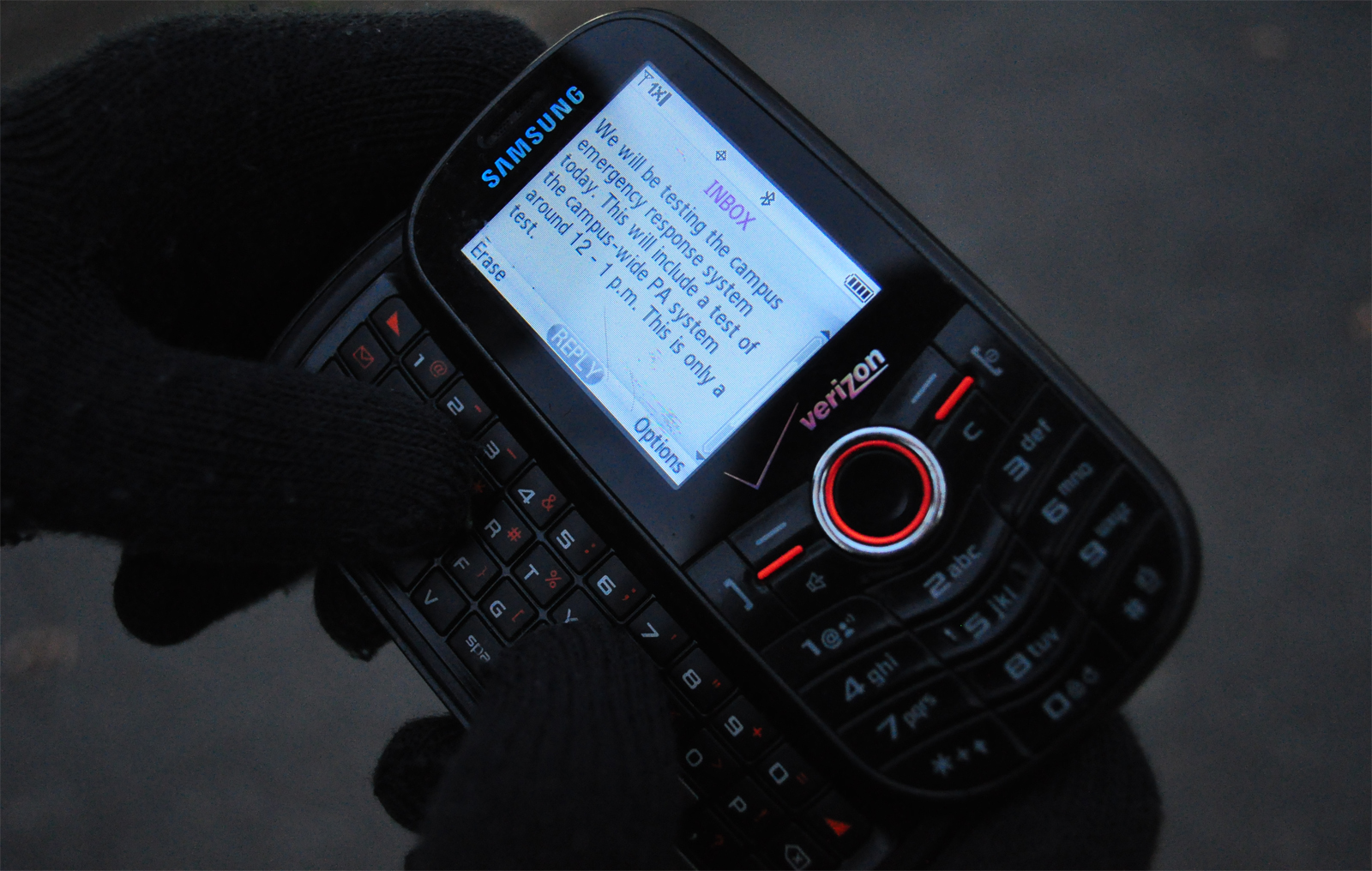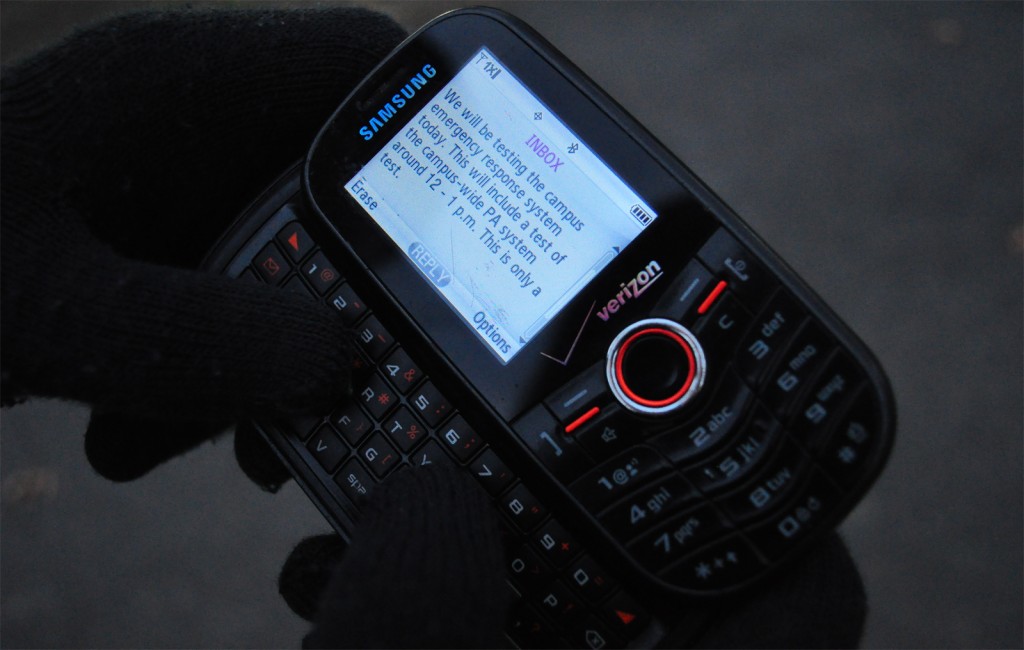

The New Paltz Alert Notification system and the campus-wide loud speaker PA system proved functional after a testing run was done on Monday, Nov. 8 between noon and 1 p.m.
SUNY New Paltz’s emergency response plan consists of these two different notification techniques, with annual tests conducted by the Emergency Response team.
The tests included an announcement over the exterior campus PA system, text and voicemail messages that are received by those registered in the system, said Emergency Response Team member and Interim Director of Communication and Marketing Suzanne Grady.
“When we test the system we are making sure that all outdoor PA speakers are functioning properly. We also send out a test text and phone alert to be certain that the system is functioning properly,” said Grady. “This test allows the New Paltz community the opportunity to check their contact preferences and change them if they need to be updated.”
All exterior speakers are functioning properly, said Grady, and text and phone messages were received by 100 percent of the registered users.
Students are automatically registered within the NP Alert System and must opt out if they do not wish to receive NP Alert notifications. Opting out, however, is not recommended, said Grady.
Third-year biology major Bryan Cernuda said he finds the NP alert system especially convenient in the winter now that he lives off campus.
“Most off-campus students need to drive, which entails shoveling. There is also trying to find a spot on campus to park, walking in snow, etc. This can add up to a lot of time spent just attempting to get to class,” said Cernuda. “I would be pissed if I got to class to only find out it was canceled.”
Catherine Ball, a third-year double-major in psychology and history, said the alert system is “definitely efficient.”
“Text messages and phone calls are close to instantaneous and can reach students that may not even be on campus at the time,” said Ball. “But considering that the system relies mainly on cell phones, I don’t think it should be the only way. There should probably be another way to alert the campus to a dangerous situation.”
According to University Police Chief Ray Bryant, the NP alert system is usually used during a “lower level emergency” like weather closings, while the campus-wide loud speaker notifications are used for major on-campus incidents.
“If it’s a real serious emergency, say, an active shooter or something like that, it will all be done simultaneously,” he said.
Faculty, staff and students can sign up to receive notifications in the event of a delay or cancellation due to inclement weather or other on-campus emergencies. All students are subscribed to the alert system and have to log in at mynewpaltz.edu to opt out or customize their contact preferences.
“We encourage every member of the New Paltz community to log on to my.newpaltz.edu and check or update their contact preferences,” said Grady. “Our system allows for two additional e-mail addresses (total of three), three mobile contacts and three voice-only contacts, making sure that you can be reached with pertinent emergency information as needed.”
System testing will continue to take place every six months in order to ensure it is working properly, as decided by the emergency response plan team. The next system testing will take place at the end of the spring semester.
